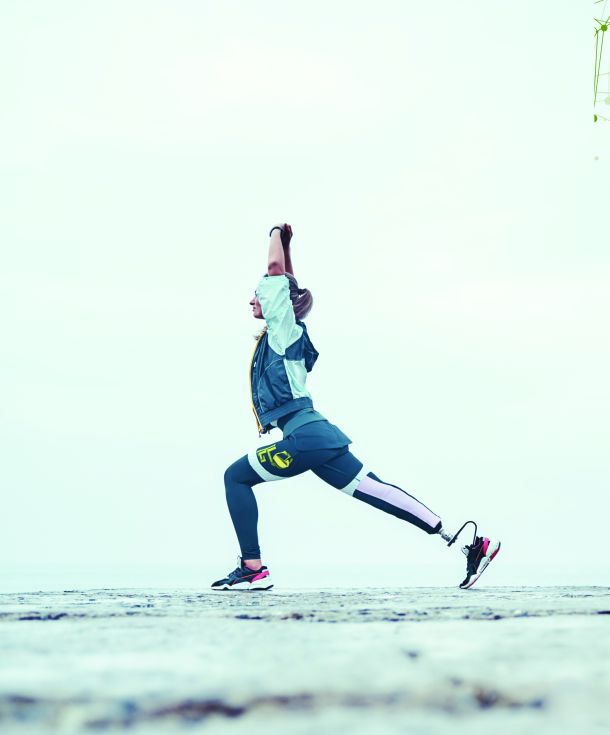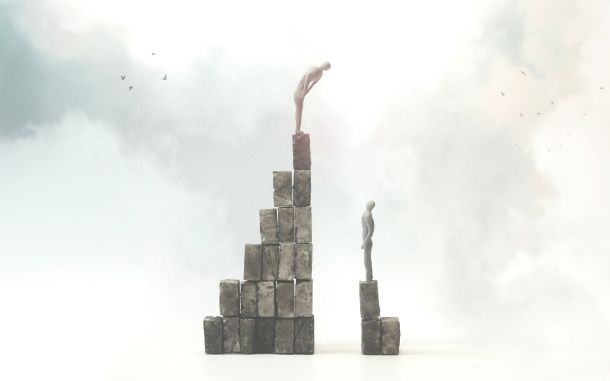In Their Shoes, Through Our Eyes: Empathy in an Introspective Age

In This Article
-
“Do I treat others based on who they are, or based on who I am?” This question transcends mere social niceties and etiquette and invites us to engage in an introspective exploration of our own moral and ethical values.
-
Our society is riddled with assumptions, stereotypes, and preconceived notions that often color our perceptions of others. When we treat people based on these external factors, we inadvertently contribute to division and discord in our communities.
-
The question “Do I treat others based on who they are, or based on who I am?” may serve as a guiding principle to overcome current global challenges resulting from the lingering effects of wars, economic disparities, xenophobia, religious intolerance, and racial and cultural tensions.
In the hustle and bustle of our fast-paced world, it is all too easy to get caught up in the chaos and lose sight of what truly matters in life: our relationships with others. More often than not, we find ourselves making snap judgments and treating people based on superficial traits rather than on the values and principles that define our own identities. Today, let’s consider a thought-provoking question that has the potential to reshape the way we interact with those around us: “Do I treat others based on who they are, or based on who I am?”
This question transcends mere social niceties and etiquette and invites us to engage in an introspective exploration of our own moral and ethical values. It challenges us to question the very nature of our existence, our purpose, and our responsibilities towards others. Consequently, it offers a gateway to a more compassionate and inclusive society, grounded in a greater understanding of our shared human experience.
Our society is riddled with assumptions, stereotypes, and preconceived notions that often color our perceptions of others. When we treat people based on these external factors, we inadvertently contribute to division and discord in our communities.
By choosing to treat others based on who we are, we embrace the core values, beliefs, and principles that guide our lives. Instead of allowing prejudice and stereotypes to dictate our interactions, we take control of our own behavior and strive to extend kindness, understanding, and respect to everyone we encounter, regardless of their background, beliefs, or circumstances. Embracing an attitude of humility and openness to new experiences, ideas, and perspectives will enable us to evolve as individuals and contribute to the collective betterment of society. By choosing to treat others based on who we are, we not only cultivate a more inclusive, compassionate, and harmonious society but also embark on a transformative journey towards self-discovery, personal growth, and moral development.
Contemplating the profound question, “Do I treat others based on who they are, or based on who I am?” can inspire us to make conscientious decisions across diverse spheres of life, encompassing religious, political, cultural, and racial aspects. For example, as a Muslim, is it appropriate for me to extend the greeting of “peace be with you” solely to fellow Muslims, or should I extend this sentiment to Christians, Jews, Hindus, and followers of other faiths as well? Similarly, as a political leader, should I prioritize the welfare of my party’s supporters or work for the betterment of all citizens, regardless of their political affiliations?
To imbue our communities with this mindset and make a positive impact starts with self-reflection. We need to examine our beliefs and values, the principles that guide our actions and interactions with others. Do we consciously cultivate understanding, compassion, and empathy in our daily lives? This introspection can be a powerful tool for personal growth and inclusivity.
Challenging our biases and assumptions is another essential step. Each of us harbors preconceived ideas about certain individuals or groups, a reality of human cognition. However, when we consciously endeavor to scrutinize these biases, we embark on a transformative process. This conscious effort enables us to perceive others in their authentic light, free from the obscuring shadows of stereotypes. This approach fosters a more accurate understanding of others, nurturing connections based on reality rather than preconceived notions.
Open dialogue
Open dialogue is a powerful tool for bridging gaps between different groups. By fostering conversations with people from diverse backgrounds, beliefs, and perspectives, we can promote mutual understanding. This requires active listening and sharing of experiences.
Supporting inclusive policies and initiatives is another important way to promote inclusivity. Whether it's through voting, volunteering, or donating, we can contribute to organizations that champion causes such as equal opportunities and social justice.
We can also play a role in encouraging others in our communities. As active participants in our communities, we possess the power to inspire change. Sharing our insights and experiences can serve as a catalyst, disseminating messages imbued with love, compassion, and understanding. This shared wisdom not only promotes a sense of unity but also has the potential to ignite a spark in others, inspiring them towards adopting a more inclusive mindset. The ripple effect of such actions can extend far beyond our immediate circles, gradually shaping a community that thrives on empathy and mutual respect.
Cultivating self-awareness—in our thoughts, words, and actions—is a cornerstone for fostering a more inclusive society. Acknowledging the potential impact of our behaviors on others and the world around us is a testament to our mindfulness. As we navigate our daily lives, striving to be a beacon of inclusivity and empathy, we can effect substantial change. By embodying these values, we can serve as positive role models, influencing others through our actions and thus sculpting a more empathetic and accepting world.
However, current global context presents unique challenges in practicing these principles, including the lingering effects of wars, economic disparities, xenophobia, religious intolerance and racial and cultural tensions. To overcome these challenges, the question “Do I treat others based on who they are, or based on who I am?” may serve as a guiding principle, encouraging us to prioritize empathy, understanding, and love in all of our interactions.
In conclusion, the question “Do I treat others based on who they are, or based on who I am?” encourages us to examine our actions, motivations, and values, seeking a deeper understanding of our place in the world and our responsibilities towards others. By doing so, we can foster a more equitable and harmonious society around us and beyond. Ultimately, this mindset paves the way for a world where we treat others based on our values and beliefs, rather than relying on preconceived notions and stereotypes.









